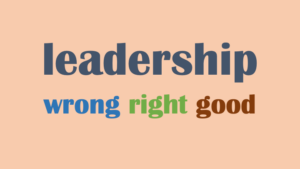Essän är skriven av en av deltagarna i kursen Miljö, minoriteter och marginalisering.
Målet är öppet
Solen lyser starkt. Termometern visar –14 grader. Det är en vacker februariförmiddag.
En perfekt dag för en promenad på isen.
På kartan syns en ö som gång på gång fascinerat mig på grund av dess ovanliga form. Ovanifrån ser ön ut som bokstaven ”O”.
Väl ute på isen, är solens glittrande reflektion i snön bländande. Snöns hårda skorpa håller stundvis och ger stundvis vika under fötterna. Tack vare mina nya högskaftade stövlar hålls fötterna torra och varma.
Ju närmare jag kommer ön, desto märkligare blir den. På ön växer det inga tallar, granar eller alar. Bara björkar. Stora stenbumlingar och klippor längs med stranden gör landstigningen svår, så jag cirklar istället runt öns nordöstra sida.
Väl runt öns norra udde slår det mig.
Öppenhet.
På horisonten syns bara trädlinjen från några avlägsna öar.
När jag stannar upp för att ta in utsikten fylls jag av en sinnlig ro.
Den bitande kylan glöms bort för att istället ersättas av solens värme på kinderna. Värmen sprider sig från kinderna genom nacken till axlarna, och som en smekande rysning ut till armarna och längs ryggraden ner till låren.
Ett oåterhållsamt leende brister ut på läpparna.
Det känns som att jag äntligen kan andas. För varje andetag drar jag in världen i mina lungor.
Ingenting annat spelar någon roll, därför att det enda som finns; det är här. Det här var målet.
Ensam, men delaktig.
Här står jag.
Livet är slutet
Jag sitter i bilen med mina föräldrar, syster och faster.
Vi kör hemåt mot Vasa från Närpes, var vi har träffat på min cancersjuka farfar.
Det är vinter, kväll och det snöar.
Ur mörkret och snöyran kan jag knappt urskilja konturerna av träden på sidorna av vägen. När jag tittar framåt skyms sikten av de stora upplysta snöflingorna.
Det är trångt i baksätet, för vi är tre som sitter här. Jag längst till vänster, mamma i mitten, och min syster på andra sidan.
Jag börjar tänka på hur svårt det skulle vara att komma loss, om man körde fast i de höga snövallarna som ramar in vägen på båda sidorna. Jag tänker på hur svårt det skulle vara att överhuvudtaget röra sig i den halvmeter höga snön.
Jag har svårt att röra på mig i baksätet.
Med min farfars överhängande död nära i tankarna, slås jag av ångest.
Hjärtat börjar slå snabbare och det blir svårare att andas.
Världen expanderar till en översikt, likt en karta, bara för att blixtsnabbt krympa ihop när jag inser att jag sitter fast i kartan.
Hela livet utgörs av kartan.
Det går endast röra sig längs de, på kartan, utdragna vägarna.
När man kommer fram till målet så tar livet slut.
Introduktion
Ovan beskriver jag två skilda erfarenheter som båda har etsat sig fast i minnet hos mig. Dessa erfarenheter ter sig till en början som totalt separata och olika varandra men, som vi kommer att se, har de flera likheter än man kunde tro. För att tydliggöra vilka dessa likheter är, arbetar jag med hur begreppen skönhet, samvaro och uppmärksamhet kan anpassas på erfarenheterna och vilken innebörd de har i denna typ av erfarenhet. Speciellt uppmärksamhets begreppet är centralt, i och med att det i stor mån utgör formen för erfarenheterna, och därför tar jag hjälp av Iain McGilchrists bok Ways of Attending: How Our Divided Brain Constructs the World, som undersöker uppmärksamheten från ett filosofiskt, neurovetenskapligt perspektiv.
Att reflektera över denna typ av erfarenhet har varit väldigt givande för att förstå min egna reaktion på- och känsla som följde av erfarenheterna, men också därför att det ger ett ramverk att arbeta inom för att närma sig etiska och ontologiska frågor.
Jag börjar min essä genom att reflektera kring själva erfarenheterna och hur dessa kändes i stunden och i efterhand för att ge en referenspunkt och inkörsport till när jag senare behandlar erfarenheternas form från ett metaperspektiv. Slutligen funderar jag över de etiska implikationerna av de olika förhållningssätt som jag presenterar i relation till McGilchrists teori om hjärnhalvornas betydelse för uppmärksamheten.
Reflektion
Erfarenheterna som Målet är öppet och Livet är slutet berättar om har jag valt att beskriva som rofylld respektive ångestfylld. Dessa ord är träffande när det gäller känslan av att befinna sig i situationerna, men intressant nog inte i efterhand. När jag skrivit ner erfarenheterna växlade känslan förknippade med dem. Den ångestfyllda erfarenheten kändes katartisk, som om den på något vis hade öppnats upp från att vara låst. Det som tidigare framkallat en kraftig obehagskänsla, framkallar nu istället ett lugn. Den rofyllda erfarenheten, från att vara någonting så öppet och lugnt, förvandlades till någonting instängt och förminskat så fort den fanns på pappret. Den hade förtingligats till någonting vars syfte är att framkalla en fjuttig ”det var ju fint” reaktion hos läsaren.
Det tidigare vackra och praktfulla hade gjorts till en parodi på sig själv.
Min vän läste igenom båda texterna och hennes kommentarer belyser både erfarenheternas form och varför de förändrats. Om den rofyllda texten sade hon att jag fångat någonting vackert.
Nyckelordet är fånga. Det vackra i situationen var precis det som inte kan eller får fångas, därför att fångenskapen begränsar och determinerar det som varit öppet och fritt. Om den ångestfyllda texten frågade hon om man verkligen måste röra sig längs kartans utmärkta vägar, eller om man också kan upptäcka nya vägar. Den obehagliga, klaustrofobiska känslan luckras upp och istället förvandlas till en värld i vilken man kan gå vart man vill.
Trots att dessa erfarenheter verkar beskriva någonting helt olika, pekar den efterhandliga reflektionen på att det inte alls är så svartvitt som det ursprungligen ter sig. Utrymmet, som är centralt i den ena erfarenheten i en positiv bemärkelse, är centralt i den andra i en negativ. Detsamma gäller den olika känslan av samvaro, samt de estetiska karaktärerna av erfarenheterna. Man kunde säga att dessa erfarenheter är varandras avigsidor, eller varsin sida av samma mynt. Detta leder oss in på frågan om formen av erfarenheten, de olika sätten på vilket uppmärksamheten tar sig i uttryck, som jag kommer att diskutera lite senare i texten.
Skönhet, samvaro och uppmärksamhet
De centrala begreppen jag nämnde i introduktionen – skönhet, samvaro och uppmärksamhet – har jag kommit till genom att reflektera kring prevalenta teman i bägge texter. Skönheten, eller den estetiska karaktären av erfarenheterna, är det som i båda fallen sparkar igång upplevelsen. I den rofyllda erfarenheten framkommer element av vacker natur och välbehagskänslor. I den ångestfyllda finns det inte någonting som direkt kan kallas för fulhet, men skönhetens frånvaro är påtaglig.
Samvaron finns också som en väsentlig del i erfarenheterna. Man kan hitta den i texterna på ett bokstavligt vis, var det berättas hur situationerna såg ut, men den förekommer också på ett existentiellt sätt som handlar om hur själva erfarenheten kändes. Ensam men delaktig, eller dess motsats – delaktig men ensam – tydliggör den existentiella formen av samvaro som är närvarande i erfarenheterna, och som vilket gör dem speciella.
Slutligen det mest centrala begreppet av alla, nämligen uppmärksamhet, under vilket de tidigare begreppen inordnas. Som vi kommer att se, med hjälp av McGilchrists tankar, finner man två olika sorters uppmärksamhet i texterna. Den relationella och kategoriserande. Om man tänker på dessa som ett spektrum så kan vi placera erfarenheten som beskrivs i Målet är öppet på den relationella ändan av uppmärksamhet. Den formen av uppmärksamhet är aktivt passiv, var erfararen står som mottagare inför världen, utan att påtvinga det en färdig tankemodell. Världen visar sig som den är till den som står med ett öppet sinne. Den andra erfarenheten, som berättas om i Livet är slutet, ligger på andra änden av spektret, under den kategoriserande formen av uppmärksamhet. Den har en förtingligande blick som determinerar det betraktade som till för betraktaren.
Uppmärksamhetens former
Iain McGilchrist är en psykiater, forskare inom neurovetenskaper och filosof. Han närmar sig frågan om uppmärksamhet från ett neurovetenskapligt, filosofiskt perspektiv. I hans bok Ways of Attending: How Our Divided Brain Constructs the World, som titeln antyder, beskriver han uppmärksamhetens sätt att förhålla sig till världen, och vilken sorts värld det är man förhåller sig till, genom att vädja till människans vänstra och högra hjärnhalvors olika betydelse för erfarenheten.
Attention may sound a bit boring, but it isn’t at all. It is not just another “cognitive function” — it is actually nothing less than the way in which we relate to the world.
And it doesn’t just dictate the kind of relationship we have with whatever it is: it dictates what it is that we come to have a relationship with.
(McGilchrist, 2019, 23)
Den högra och vänstra hjärnhalvan har alltså inte definitivt specificerade uppgiftsområden, utan båda halvorna sköter till någon mån om allt som hjärnan gör. McGilchrist menar att skillnaden hos halvorna hittar vi i hur de gör vad de gör. För att illustrera skillnaden beskriver han en fågel som mitt bland kaoset på marken urskiljer fröet som den ska äta, samtidigt som den också är uppmärksam på hela helheten av dess omgivning, så att den inte själv faller offer för att bli uppäten. McGilchrist hävdar att det är den vänstra hjärnhalvan som i sin uppmärksamhet kategoriserar, bryter ner och systematiserar omgivningen så att fågeln kan urskilja fröet från stenen, och den högra hjärnhalvan som i sin uppmärksamhet kan ta in helheten av omgivningen och hur fågeln själv står i relation till det som finns omkring. När det kommer till människan så har hjärnhalvorna motsvarande funktioner. Den vänstra halvan, genom sitt kategoriserande och förminskande, hjälper oss att göra nytta av världen. Samtidigt får den högra halvan oss att förstå vår relation till- och därför också empatisera med det som inte är oss själva.
För att ännu generalisera bägge hjärnhalvors funktioner i uppmärksamheten kan man säga att den vänstra hjärnhalvan kategoriserar och separerar det upplevda till det specifika och greppbara. Det är detta som sker när jag ser på världen och konstaterar att stolen är separat från bordet, som båda i sin tur är olika än väggen osv. Den vänstra hjärnhalvans förhållningssätt till det den uppmärksammar är att det finns där för mig som någonting jag kan använda. Dess förhållningssätt präglas av att se på världen som havande av ett värde specifikt som resultat av dess instrumentella funktion för mig. Den högra hjärnhalvan är det som uppfattar världen som i första hand helhetlig och relationell, var allting är relaterat till varandra, och inte bara står i relation till mig. Inom denna helhetliga värld uppfattar den högra hjärnhalvan sig själv som väsentligt delaktig, likt allting annat. Denna uppmärksamhetsforms förhållningssätt ser på värdet hos någonting som definierat av dess relationer till det andra, vilket jag också hör till, men begränsas inte i relation till mig.
I min text Målet är öppet genomsyras första halvan av den vänstra hjärnhalvans uppfattning. Jag beskriver hur specifikt den här ön är den som jag vill gå till, och vidare att fokuset handlar om min reaktion till vad som finns på ön, trädsorten som växer på den och strandlinjen som är svårbestiglig på grund av stora stenbumlingar. Det är således ett kategoriserande, specificerande, separerande förhållningssätt som jag har till ön, vilket placerar ön som där för mig, istället för att finnas där i egenskap av sig själv. Min beskrivning av erfarenheten ändrar karaktär i den andra halvan, när jag berättar om hur jag kommer runt udden av ön. Relationen betonas bland annat mellan mig och öarna på horisonten, mellan kylan och värmen och hur allting, tillsammans, står i relation till varandra. Att jag andas in världen berättar att gränserna mellan mitt eget varande och världens suddas ut, att vi uppgår i samma helhet. ”Ensam men delaktig” förklarar relationen som jag, i den stunden, står i till världen. Ensam därför att jag står i relation till världen, och delaktig också därför att jag står i relation till världen. Det väsentliga i texten är just övergången till uppfattningen som relationell till- och varandet som delaktig i en värld som är relationell.
Livet är slutet visar också element av båda hjärnhalvornas uppmärksamhetsformer, men på ett mera kombinerat sätt. I texten kan man se hur jag i situationen försöker ta fasta på min omgivning på ett kategoriserande vis, men, på grund av mörkret och snöyran som skymmer sikten, misslyckas. Jag tänker mig att jag på grund av min farfars cancer hade ett större behov av att försöka kontrollera min omgivning än vanligt. Oförmågan att betrakta världen som där för mig tvingade mig att istället se världen som relationell och se mig själv som delaktig i den, vilket ledde till den starka känslan av ångest. Min påtvingade delaktighet i världen blev således en kamp i att förgäves försöka kontrollera utrymmet, samtidigt som den enda kontrollerande blick jag kunde rikta var mot mig själv, fast den kontrollerande blicken bara förtingligade mig. Man kunde beskriva spektrumet av hjärnhalvornas uppmärksamhetsformer som ett ”A”, var uppmärksamhetens utgångspunkt är strecket som beskär vinkeln. Den vänstra hjärnhalvans kategoriserande uppmärksamhet riktas mot vinkelns spets, medan den högra, relationella hjärnhalvan blickar mot dess öppning. För att applicera denna beskrivning på erfarenheten i fråga, kunde man säga att uppmärksamhetens utgångspunkt skiftar mellan A-strecket, och A:ets spets. Om vartannat är man betraktaren av objektet, och om vartannat är man objektet som blir betraktat.
Etiska implikationer
Jag har med hjälp av texterna Målet är öppet och Livet är slutet försökt beskriva hur McGilchrists olika uppmärksamhetsformer kan ta sig i uttryck i det levda livet. För att försöka förstå de etiska implikationerna som bägge förhållningssätt för med sig kan vi göra ett tankeexperiment, var vi försöker tänka oss hur erfarenheten skulle se ut, vore vi använda purt den ena hjärnhalvan. Om vi tänker oss världen som betraktad genom den vänstra hjärnhalvan, så finns det värde enbart i dess instrumentella funktion för mig. Det betyder att världen är slav under min nyck. För att illustrera problematiken i detta förhållningssätt kan vi tänka oss till exempel ett bords instrumentella värde för mig. Jag kan placera saker på bordet, flytta bordet till en annan plats eller bygga en koja under det. Eller så kan jag slå bordet i tusen bitar eller också bränna upp det, om jag så tycker. Man kunde göra ett argument att alla dessa är bra sätt att använda bordet på, men när vi överför detta förhållningssätt till resten av världen så ser vi var problemen uppstår.
Pur uppmärksamhet av den högra hjärnhalvans sort ter sig mera svårfångad, men det är i själva verket just där var vi hittar problematiken. Ingenting kategoriseras eller systematiseras, så vi kan inte ens prata om bordet överhuvudtaget därför att det inte är skilt från någonting annat. Inte ens det som kunde vara mat kategoriseras. Här tänker jag att problematiken skulle vara densamma som en fullständig ego död, nämligen att man inte längre vet vilken mun som är sin egen och som behöver äta. Eller ens vad en mun är. Världen som betraktas saknar alteritet, därför att allting infaller under det samma.
När vi slutligen analyserar bordet genom en kombination av dessa två uppmärksamhets- och förhållningssätt, förstår vi att bägge är nödvändiga för att ha en rimlig, etisk och hållbar inställning till världen. Jag ser att bordet är separat från stolen och golvet, och att jag kunde använda det på olika sätt. Ändå förstår jag att bordet inte finns där för min nyck, därför att jag ser relationen som denna har till världen, till dess skapare, till andra som använder det, funktionen som det fyller osv.
Det skulle vara fel att förstöra bordet, men bordet går att använda på sätt som inte förstör detta, alltså sätt som inte är fel. Man kunde säga att dessa sätt som inte är fel är respektfulla sätt att använda bordet.
Avslutning
McGilchrist antyder att samhället idag präglas av en uppmärksamhetsform som ligger alltför långt på den vänstra hjärnhalvans sida av uppmärksamhetsspektret, vilket skapar en värld av människor som alla ser på världen som till för sig, offer för vår nyck. Således borde vi försöka kultivera också den högra hjärnhalvans förhållningssätt för att istället skapa en värld av värdefulla relationer som samtidigt var mera hållbar. Om man inte är övertygad kan man på en personlig nivå fundera kring vilken av de två ovanbeskrivna erfarenheterna man föredrar, i och med att de ligger så tätt bundna med de olika uppmärksamhetsformerna.
Slutligen vill jag poängtera att trots McGilchrists sätt att närma sig frågan är snyggt, begripligt och tämligen väl presenterat, så är det bara ett av många olika sätt. Det viktiga är inte om det handlar om den vänstra eller högra hjärnhalvan, utan att uppmärksamheten har olika former, vilka spelar en enorm roll för oss och världen vi lever i.
Reidar Uljens
Referens
Iain McGilchrist. 2018. Ways of Attending: How our Divided Brain Constructs the World. London, New York: Routledge


 Bilden kommer från Enare träsk. Långt borta i bakgrunden syns Ukkos sten, en av samernas viktigaste heliga platser. Om Finland i framtiden skulle bygga Ishavsbanan, en järnväg till Ishavet kunde den passera dessa trakter. I kursen diskuterar vi bland annat hur olika ekonomiska intressen och kulturella värden som här kan komma att stå i strid med varandra.
Bilden kommer från Enare träsk. Långt borta i bakgrunden syns Ukkos sten, en av samernas viktigaste heliga platser. Om Finland i framtiden skulle bygga Ishavsbanan, en järnväg till Ishavet kunde den passera dessa trakter. I kursen diskuterar vi bland annat hur olika ekonomiska intressen och kulturella värden som här kan komma att stå i strid med varandra. 

